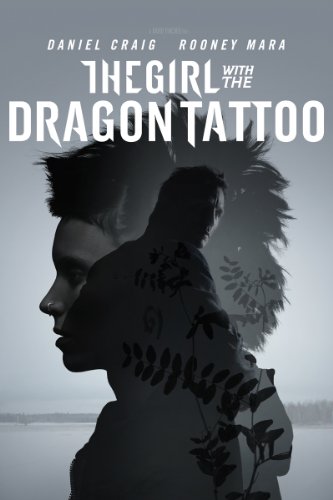All Nonfiction
- Bullying
- Books
- Academic
- Author Interviews
- Celebrity interviews
- College Articles
- College Essays
- Educator of the Year
- Heroes
- Interviews
- Memoir
- Personal Experience
- Sports
- Travel & Culture
All Opinions
- Bullying
- Current Events / Politics
- Discrimination
- Drugs / Alcohol / Smoking
- Entertainment / Celebrities
- Environment
- Love / Relationships
- Movies / Music / TV
- Pop Culture / Trends
- School / College
- Social Issues / Civics
- Spirituality / Religion
- Sports / Hobbies
All Hot Topics
- Bullying
- Community Service
- Environment
- Health
- Letters to the Editor
- Pride & Prejudice
- What Matters
- Back
Summer Guide
- Program Links
- Program Reviews
- Back
College Guide
- College Links
- College Reviews
- College Essays
- College Articles
- Back
The Girl with the Dragon Tattoo MAG
Let's put aside the fact that David Fincher's “The Girl with the Dragon Tattoo” is based on the first book in the ever-so-popular Millennium Trilogy by the late Swedish author Stieg Larsson (and that all three books have been adapted into Swedish films), and examine Fincher's latest work as a stand-alone movie. This is a cold, bleak, sometimes disturbing exercise in filmmaking, with a sense of dread mounting in every scene, accentuated by the pulsing electronic score of Trent Reznor and Atticus Ross.
The story takes place in Sweden, which means dark, rainy days and snowstorms. The central mystery lies buried within the Vanger family, who owns a major corporation. Forty years before, then 16-year-old Harriet Vanger disappeared under suspicious circumstances, and the solution to this tragedy has never been found.
Still on a high from last year's critically acclaimed “The Social Network,” David Fincher is back in a somewhat familiar groove with his slick direction and the screenplay's quick dialogue. “The Social Network” producer Scott Rudin is back too, along with cinematographer Jeff Cronenweth, who casts the picture in dim, unwelcoming colors. “The Girl with the Dragon Tattoo” isn't better than “The Social Network,” mainly because its premise is more routine and formulaic compared to the founding of Facebook. However, Fincher's new film is an expertly made murder mystery.
Daniel Craig stars as Mikael Blomkvist, a writer who has just been sued for libel. He's disgraced and doesn't know what to do until he meets Henrik Vanger (Christopher Plummer, in a witty, sinister performance), who enlists him to write his biography while secretly attempting to solve Harriet's murder.
Meanwhile we have Lisbeth Salander (a hardly recognizable Rooney Mara), the underdog of the story. She is short and skinny, wears baggy clothes, and sports a mohawk. Her body is covered with piercings and tattoos. She lacks social skills and unfortunately gets taken advantage of sexually. These scenes are graphic and intense.
But Lisbeth is resilient and not a victim. The scene where she gives her abuser his comeuppance provides the kind of raw satisfaction audiences get from vigilante movies. Lisbeth is also a hacker – one of the best – and watching her at her computer, decrypting documents and breaking into e-mails, is just as exciting as it was seeing Zuckerberg do it.
For most of the film, Lisbeth and Mikael remain separate. Mikael works diligently, digging deep into the corrupt Vanger family. Meanwhile Lisbeth does her hacker thing and struggles to get money and food. Movies that do a lot of jumping back and forth have a tendency to get exhausting, but Fincher's stylistically smart direction gives ample time for both narratives.
It also helps to have a well-structured, meaty screenplay by Steven Zallian filled with rapid-fire dialogue that's informative and entertaining. And though the movie is dark, Zallian finds comical moments.
When Mikael and Lisbeth's story finally unites, the movie is at its finest. Craig's stern ruggedness fits the role. He plays a charmer, as with his James Bond role, but he looks washed-up and defeated, and conveys that sense of shame perfectly. Mara works hard, plunging into the complex character of Lisbeth. Mikael's personable reporter mentality plays perfectly off Lisbeth's lack of sociability and mistrust of others.
I haven't read Larsson's books yet. Sometimes we tend to hold films to a standard that only books can achieve. I've heard this film doesn't stray far, except for a few details near the end. Fincher has crafted a fine movie with a strong, complex protagonist that we can both feel empathize with and root for.
This film is rated R.
Similar Articles
JOIN THE DISCUSSION
This article has 0 comments.

